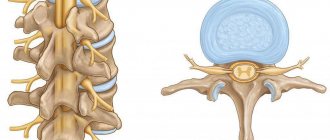Author
Korobkova Irina Grigorievna
Head of the Department of Post-Stress Conditions and Sleep Disorders
Chief Network Specialist
Candidate of Medical Sciences
Psychotherapist
Publication date: 04/07/2021
until December 31
We are giving 1000 rubles for all services for a visit in December More details All promotions
Regular exercise isn't just good for your body. They can help us cope with stressful situations.
In the shadow of stress
Stress can't be avoided, but it can be controlled
As they say, stress cannot be avoided, but it can be controlled.
There are many factors that contribute to the development of stress. A stressful background is created by health problems, financial difficulties, work; Even our normal reactions to everyday life can lead to increased anxiety and “feed” stress.
Statistical surveys show that almost everyone has to deal with stress. According to ROMIR, 95% of our country’s residents experience stress in one way or another. VTsIOM data differs slightly: according to them, only 9% of Russians are not familiar with stress. And 8% of the population experience stress constantly.
How many people are stressed at one time? According to the results of one of the studies (data from the Kemerovo region for 2013 were used), the prevalence of stress was 22.6%. At the same time, stress was registered more often in women than in men (28.1% versus 11.7%).
We cannot completely avoid problems. Avoiding problems is not the best tactic. But by developing a habit of regular exercise, you can add an effective stress relief tool to your arsenal.
How to restore inner harmony
To calm the nervous system, you need to restore balance and create harmony between the two nerve centers. To do this, you need to learn to turn off brain activity and give the reins to the parasympathetic nervous system. It can be difficult. Because, in essence, it means letting go of control and deliberately going with the flow for some time, not striving for anything. This process is called meditation.
There are several ways to calm the nervous system, most of which involve focusing on one thing for a period of time. As I wrote above, it is the activity of the mind that does not allow the nervous system to rest, even when we are just lying on the couch. The mind will never calm down on its own. This is his nature, he must be constantly busy with something. Stopping internal dialogue for the mind is death. Therefore, he constantly jumps from one thought to another, and this chaos creates chronic nervous tension.
In fact, it only seems that if we stop constantly thinking about something, we will cease to exist in consciousness. This is wrong. On the contrary, by reducing the activity of your mind, you will feel lightness and inner freedom. After meditation, you feel a surge of strength, fresh ideas and new feelings come.
How does exercise help relieve stress?
Aerobic exercise (moderate-intensity exercise that uses oxygen for energy) increases your heart rate, causing the body to release endorphins, chemicals that act as a natural pain reliever and improve your mood. After exercise, we experience a natural emotional uplift.
Endorphins not only relieve pain and improve your mood, they also help us sleep better. The combination of these effects can reduce the effects of stress. By exercising regularly, we get the opportunity to enjoy these benefits more often.
Regular exercise (as opposed to one-time exercise) also has a cumulative effect, which manifests itself in improving the level of physical fitness, increasing endurance and losing weight. These are all positive changes, and the fact that we are changing for the better increases our self-esteem. And with the growth of physical strength, emotional strength also increases, and mental well-being improves.
One more thing. During times of stress, it is human nature to concentrate on the problem. Under the weight of worries, it is difficult to think about anything else. And we overwhelm ourselves, feeling that this oppression is increasing. But having inserted physical exercise into our daily schedule, we will be forced to switch. And even a short-term complete redirection of attention to something else can bring vital relief and relieve stress. In addition, coming to the gym can help you find a new circle of communication and additional emotional support.
The influence of practice on the nervous system
The emotional state and functioning of internal organs depend on how efficiently the nervous system works. When the autonomic system works intermittently, this is fraught with the development of psychosomatic disorders and a decrease in quality of life.
Being in this state, a person constantly experiences anxiety and a feeling of helplessness. Experiencing this, people do not see their own responsibility for what is happening and do not strive to make efforts to correct the situation. They place all the blame on external circumstances or people around them.
When the nervous system does not work correctly, people suffer from neuroses, depression, and persistent fatigue. This causes disruption of the cardiovascular system and autoimmune diseases. To eliminate these ailments, meditative practices are recommended that help eliminate insomnia, restore the emotional background, and relieve physical stress.
Benefits of practicing meditation for stress relief and deep relaxation:
- restoration of heart rate, normalization of blood pressure;
- the blood receives more oxygen due to special breathing techniques;
- Less stress hormones enter the body, which has a positive effect on the functioning of the nervous system.
What exercises are we talking about?
Jogging will give you positive emotions
Jogging will give you positive emotions
A 20-minute walk in the park or a visit to a Pilates studio can help. Going to the gym or going for a long run can also help. Each type of exercise has its own benefits, and different exercises will suit different people.
You may find that your tension is relieved by breathing in fresh air and choose breathing exercises or focus on the soothing rhythm of repetitive muscle movement. Just as stress is unique to each person, so are the ways we cope with it.
Ways to quickly relieve psycho-emotional and muscle tension
“The human mind is such that it can make hell heavenly and heaven hell”
D. Milton, “Paradise Lost”
Emotional tension is often confused with stress, although these concepts should be separated. We can say that emotional tension is the cause, but the state of stress is the consequence. Emotions, undoubtedly, decorate our lives and make it more complete. Joy, love, surprise, gratitude - all these are emotions that we experience constantly. It’s good if a person knows how to throw out his emotions from time to time. Someone goes to a psychologist to talk about their difficulties, about what is “boiling.” Someone shares their problems, fears and grievances with friends and loved ones. But how can you cope with tension if you are left alone with yourself? I offer 10 express methods for relieving mental stress, accessible to everyone.
- Deep breathing exercises
Inhale slowly and deeply through your nose, filling your stomach and then your chest with air. Slowly count to four 1-2-3-4. Go at your own pace. Exhale through your mouth as slowly as possible, pursing your lips as if you are about to whistle. When your lungs feel empty, count to four again. Start the exercise again and repeat 3-4 times.
- Quick relaxation
In a stressful situation, the ability to quickly relax. At the beginning, you will need to apply the previous method of relieving emotional stress, deep breathing exercises two or three times, counting the inhalation and exhalation to yourself... After achieving general relaxation, you need to feel all the muscles of your body. Focus on your facial expression and body position. If you feel excessive muscle tension in any part of the body (for example, in the right arm), then tense and then relax various muscle groups in this part of the body (tighten and relax the biceps, forearm muscles, etc.). Try to feel your body and how it relaxes. This technique can also be practiced in an imaginary stressful situation. Repeat the exercise once a week.
- Concentration
For this exercise, it is good to concentrate on the things that surround you at the moment. Look around and carefully examine the room you are in. Concentrate on broadcasting the same color, for example, remember everything is white. Fix the color white with the association of white milk, white clouds, etc. Afterwards, collect all the items one by one, stopping at each item separately. Exercise will help you take your mind off emotional stress. Attention will be diverted to the rational perception of the environment.
- A change of scenery
A change of environment is a good help to relieve stress. If you are in a bad mood, feel tense, or the situation is depressing, then leave the room where acute stress occurred. You can just go outside, if you can, take a walk in the park, where you can be alone with your thoughts. Look around, see what surrounds you, observe nature. If it's the weekend, then be sure to go out into nature (when the weather permits), go to the movies, meet friends, do something unusual.
Be sure to plan an unforgettable trip on your vacation. The trip will allow you to meet new people and immerse yourself in a new culture. Unfamiliar places allow you to see the world around you in all its glory. Be sure to take a notepad and camera with you. Observe everything new and write down everything that comes to mind. New impressions will prolong the positive emotions from the trip for a long time.
- Relaxation
Lie on your back. Concentrate on your breathing. Slowly relax your body. Begin to inhale slowly through your nose. Fill the lower chest, then the middle and upper chest and lungs. Remember to do this slowly. Hold your breath for a second or two. Then you need to calmly and easily release the air. Wait a few seconds and repeat the exercise. Imagine that you are in a calm situation, surrounded by palm trees and a warm, gentle ocean. You can continue this breathing technique as long as you like until you feel sleepy.
- Abstraction
Engage in some kind of activity - no matter what: start washing clothes, washing dishes or cleaning. It doesn't matter, any activity you choose will help you take your mind off things.
- Music
Choose your favorite quiet, soothing music. Make yourself comfortable and listen in a relaxed environment.
- Arithmetic
Calculate how many days are left until the significant days in your life. For example, how many days are left until your birthday, until the significant dates in your life that you are waiting for. Good memories, when they were, and how much has passed since then.
- Communication
Talk about an abstract topic with anyone you know. He may be next to you, or you can call him on the phone. This will give you a distraction at this stage.
- Warm shower
Warm water has a relaxing effect on the muscles, thereby relieving tension. Water jets also promote relaxation and relaxation through a gentle massaging effect. The shower can also be contrasting, it all depends on your personal preferences.
All these recommendations will help you quickly get rid of psycho-emotional stress and allow you to look at the world from a different perspective. Don't let your emotions rule your life. Remember that it depends only on you whether your life will be a continuous holiday or a series of failures.
List of used literature:
When preparing the article, data from Internet resources was used.
Timoshenko G., Leonenko E., “Working with the body in psychotherapy.”
Prepared by psychotherapist D.A. Ignatovich,
medical and psychological department
Complex 2. Muscle relaxation
The progressive muscle relaxation technique was developed by the American doctor E. Jacobson in the 1920s. It is based on a simple physiological fact: after tension of any muscle, a period of automatic relaxation begins. Taking this into account, a technique was developed according to which, in order to achieve deep relaxation of the body, you first need to strongly tense your muscles for 10-15 seconds, and then concentrate on the feeling of relaxation that arises in them for 15-20 seconds.
Exercises:
- Start by focusing on your breathing for a few minutes. Breathe slowly and calmly, think about something pleasant. After this, you can begin muscle exercises, working on different muscle groups.
- Hands.
Squeeze your hand as tightly and tightly as possible. You should feel tension in your hand and forearm. Relax your hand as you exhale, concentrating on the feeling of relief that arises. Repeat the same for the other hand. If you are right-handed, you should start with your right hand, if you are left-handed, start with your left. - Neck.
Tilt your head back, slowly turn it from side to side, then relax. Pull your shoulder joints high towards your ears and in this position tilt your chin towards your chest. - Face.
Raise your eyebrows as high as possible, open your mouth wide (as if you are pretending to be very surprised). Close your eyes tightly, frown and wrinkle your nose. Clench your jaw tightly and move the corners of your mouth back. - Breast.
Take a deep breath and hold it for a few seconds, then relax and return to normal breathing. - Back and stomach.
Tighten your abdominal muscles, squeeze your shoulder blades together and arch your back. - Legs.
Tighten the front and back muscles of your thighs, keeping your knee in a tense, bent position. Pull your foot towards you as much as possible and straighten your toes. Extend your ankle joint and flex your toes.
Do 3-4 repetitions of the complex. Each time you rest a newly tense muscle, notice how good it feels and how relaxed you feel. It helps many people cope with stress and anxiety.
conclusions
There are a lot of different meditation techniques. But they all lead to the same goal. It is important to choose the appropriate meditation method to calm the nervous system. Because all people are different and there is no one universal recipe. What helps one person relax may be like a red rag to a bull for another. If you sit for 15 minutes in meditation and this makes you even more psychotic, do not force yourself and find a more suitable way to relax.
Don't forget to get your free online course on mindfulness meditation : get the course for free
There I show you the fastest and safest way to learn to meditate from scratch and bring a state of mindfulness into everyday life.
Categories:Meditation
Tags: meditation
Reviews and comments
You can express your opinion about the article, relaxation exercises, as well as share your own knowledge on the topic and experience, using the comment form.
We also recommend reading:
- Storytelling
- Muscle relaxation: relaxation techniques
- Stress Diary
- Anger management: a selection of useful materials
- How to manage anger?
- What to do with psychological problems?
- Is it hard to be a yogi?
- Methods of mental self-regulation: save yourself
- 10 Popular Exercises to Relieve Stress
- To breathe or not to breathe?
- How to learn to relax: effective relaxation techniques
Key words:1Psychoregulation











